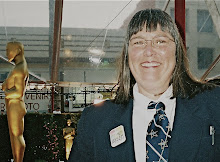For three months we paid our mother’s rent. But when it became apparent that she wasn’t leaving the hospital anytime soon and was heading for a nursing home after that, we had some tough decisions to make. My brother put her things in storage and paid for it faithfully himself. Not having the financial means to help him, I contributed by driving up there, organizing her things and packing them up. After a year we had to downgrade to a smaller storage facility, so I made the trip again. I agonized over what to keep and what to give away. This time we kept only the basics.
Having gone through that experience recently and more than once, I was so empathic with That Evening Sun, that I found it emotionally painful. Like the character in the film, I had to learn about letting things go. Hal Holbrook plays Abner Meecham, who at 80 years old ran the family farm on his own, after the death of his wife. His son, now a lawyer, was worried about him being all alone. But Abner was stubborn and refused to give the place up. One day when he slipped and broke his hip, he nearly died because it took a full day for anyone to find him. In this vulnerable state and in need of recovery, Abner’s son had him placed in a convalescent hospital, but Abner found it unbearably lonely. Even though he was physically alone on the farm, he was surrounded by his things and memories. In the hospital, he was alone even though he was among many.
Once on the mend, Abner decided that he couldn’t take it anymore so he packed his suitcase and left. The hospital sent a taxi driver to find him, but Abner bribes him to drive him to the farm instead. When he arrives there he discovers that his son had rented the place out, and what was worse, he rented it to a man Abner hated. Abner demands that his enemy leaves his home, but he has a lease and refuses to go. Abner declines to leave also, so the two men have a stand-off. Abner moves himself into the tenant shack where all his personal belongings have been stored. His furniture had been rented with the house and Abner desperately wanted to see inside, but the renters won’t let him in. Abner reluctantly returns to the shack and begins sorting through his possessions and his memories.
Being confronted with both his past and his present, Abner is having to confront the consequences of his life choices. It kills him that his enemy is living in his house, and he his angry that his son is not taking his side. Perhaps if he had invested more of himself into his family and friends, instead of his farm, they would be there for him now. As it is, he is fighting for his home against a man he loathes and all that he has worked for is slipping out of his hands.
That Evening Sun is thought provoking, and wistful. It’s melancholy tone draws you into Abner’s pensive world and like Abner you must take stock. What in this life is worth keeping?
Rating: Rent It A melancholy film to watch on a gloomy day
About Me

- Melanie Wilson
- My Reviewer's Philosophy: I believe that every film has its audience. One man’s Citizen Kane is another man’s Texas Chain Saw Massacre. My purpose is to help you spend your entertainment dollars wisely. A bad review never kept me from going to a film I wanted to see, but a good review will sometimes get me to a film I never considered. As a movie lover I want you to go to the movies. When more people go to the movies, the more movies get made. But, I also believe that if you enjoy the films you see, you naturally will be inclined to go more often. So join me in supporting our film industry by going to a movie today. Hopefully I can steer you towards a good one. See you at the movies. Melanie Wilson
Thursday, December 3, 2009
Subscribe to:
Post Comments (Atom)
No comments:
Post a Comment